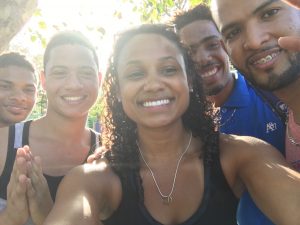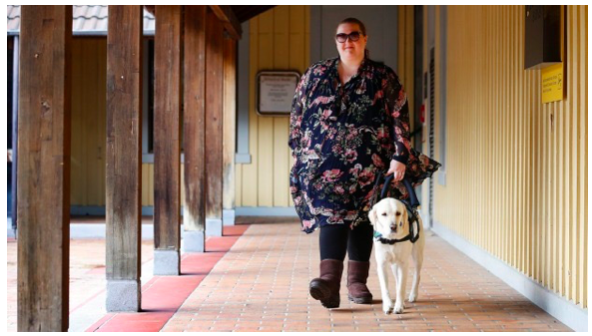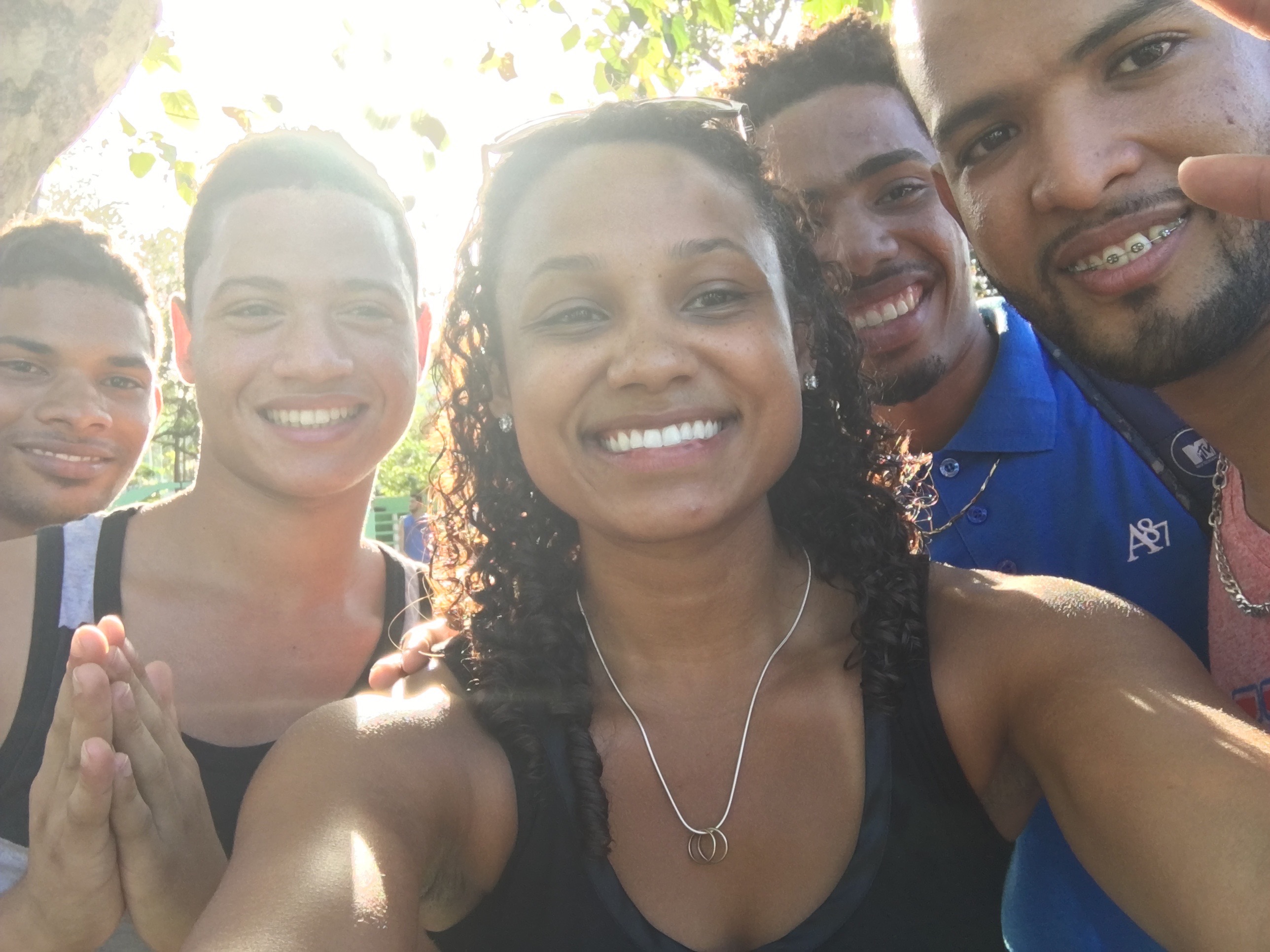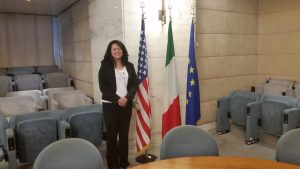
History Estill-Varner, 2015-2016, Dominican Republic (center), with a group of community members at a Deaf sporting event hosted at the Olympic Stadium in Santo Domingo.
The anticipation leading up to my departure for the Dominican Republic as a Fulbright U.S. Student Study/Research award recipient is something I remember vividly. While I dreamt of the ways that my research would have an impact on my host community, I had no idea that it would also end up having an impact on me. Some may call it serendipity, others may call it a blessing, but I now realize how the Fulbright “piece” was the perfect fit to the “puzzle” of my soon-to-be professional life.
I began constructing my puzzle in high school by taking sign language classes and added another piece during college through an intensive Spanish immersion program in Costa Rica. Due to these experiences, I chose to double major in American Sign Language/English interpretation and international studies at the Rochester Institute of Technology. Yet, as I progressed in my undergraduate career, I struggled to see how these pieces fit together. How was it possible to apply a language that is uniquely American to the international community? When my professor approached me about an opportunity to apply for a Fulbright award, I knew this was my chance.
Shortly after I heard about Fulbright, I worked as an intern in the Dominican Republic’s Ministry of Education. Over the summer of 2014, I had the opportunity to meet members of the Dominican Deaf community. To my surprise, I discovered that American Sign Language and Dominican Sign Language were not that different after all. Suddenly, something that I had previously thought restricted me professionally to the United States, gave me an international connection to the Dominican Deaf community and a foundation for a Fulbright proposal.
Continue Reading





